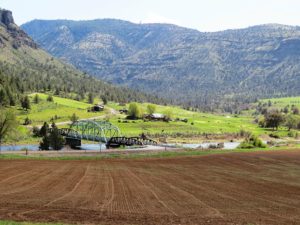Successful Western States Source Water Protection Virtual Workshop Held with NRCS This Week
 On June 9, the Nevada Integrated Source Water Protection Program hosted a virtual workshop with the state source water protection and USDA Natural Resources Conservation Service (NRCS) programs in the western states. There were 71 participants that attended the workshop including: state and Regional source water protection (SWP) coordinators from EPA Regions 8, 9, and 10 as well as New Mexico and EPA Region 6; NRCS Regional and State Conservationists from the Western and Central NRCS Regions (there are four NRCS regions); National Source Water Collaborative members including ASDWA, GWPC, AWWA, EPA and NRCS Headquarters, and more. The workshop featured presentations from NRCS, Oregon and Idaho, along with discussions.
On June 9, the Nevada Integrated Source Water Protection Program hosted a virtual workshop with the state source water protection and USDA Natural Resources Conservation Service (NRCS) programs in the western states. There were 71 participants that attended the workshop including: state and Regional source water protection (SWP) coordinators from EPA Regions 8, 9, and 10 as well as New Mexico and EPA Region 6; NRCS Regional and State Conservationists from the Western and Central NRCS Regions (there are four NRCS regions); National Source Water Collaborative members including ASDWA, GWPC, AWWA, EPA and NRCS Headquarters, and more. The workshop featured presentations from NRCS, Oregon and Idaho, along with discussions.
- Julie Harvey with the Oregon SWP program and her state NRCS partners shared how they have been working together for many years to develop priority SWP areas, National Water Quality Initiative (NWQI) and other NRCS program projects, and implement conservation practices that target resources concerns that benefit both programs and protect drinking water.
- Astor Boozer, the Western NRCS Regional Coordinator highlighted the current NRCS opportunities for continuing to build relationships and understanding for how each other’s programs work, and connecting with the state and local NRCS committees and workgroups.
- Ed Hagan with the Idaho state SWP program shared how they have partnered with NRCS to change some of the focus from working in surface water watersheds to target priority areas and develop conservation practices for addressing nitrate in groundwater.
Key discussion points included additional actions for states and national organizations (including ASDWA and the Source Water Collaborative) such as sharing additional examples of how the programs have worked very closely in some states to target priority SWP areas and determine conservation practices for agriculture and forestry that are tailored to the state specific and local issues; and organizing more meetings between the state SWP and NRCS programs at the regional and state levels. For more information about the workshop, view the agenda here.

